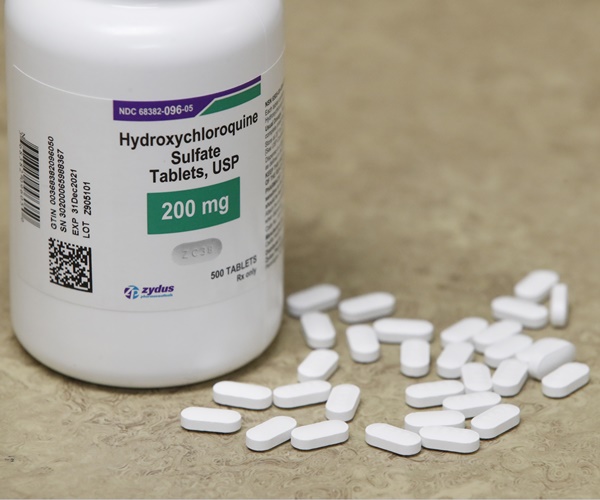Scientists challenge study that showed Hydroxychloroquine didn’t work
By Eric Mack From Newsmax

A scientific paper that trashed the efficacy of hydroxychloroquine is under scrutiny by more than 100 scientists.
Among the questions asked in a letter to The Lancet were the source of the data, the anonymity of hospitals, the countries they are in, and the speed in which the study was conducted, reviewed, and reported, The New York Times reported.
Also, the study did not include zinc, a vital component that had spurred President Donald Trump to take HCQ and zinc as a coronavirus prophylactic – as media and political opponents bashed him for doing (similarly without any scientific evidence they claimed did not exist for the efficacy argument).
“Data from Africa indicate that nearly 25% of all COVID-19 cases and 40% of all deaths in the continent occurred in Surgisphere-associated hospitals which had sophisticated electronic patient data recording,” the scientists wrote, per the times. “Both the numbers of cases and deaths, and the detailed data collection, seem unlikely.”
Surgisphere is a healthcare data analytics company.
In fact, data cited from Australia has “more in-hospital deaths than had occurred in the entire country during the study period,” per the scientists, who are now calling for an independent review. The skeptics included clinicians, researchers, statisticians, and ethicists from Harvard, University of Pennsylvania, Vanderbilt University, and Duke University.
“The biggest thing that raised a red flag was that here was such a large database across more than 600 hospitals, and no one had really known about its existence,” Duke Clinical Research Institute Dr. Adrian Hernandez, a signatory to The Lancet, told the Times of the many troubling anomalies. “That was quite remarkable.”
The Lancet study was used to suggest not only chloroquine and hydroxychloroquine had little effect on COVID-19 recovery but might have increased abnormal heart rhythms and deaths.
The paper was published May 22 as Trump pushed for the country to reopen after extended coronavirus mitigation shutdowns. It claimed to have “data on tens of thousands of patients hospitalized through April 14,” which gave just about five weeks for the data to be collected, reviewed, written, and published.
The Lancet did make two corrections to its report on the study, but told the Times “there have been no changes to the findings of the paper.”
The omission of zinc in the HCQ argument is glaring, particularly as critics take aim at the president for using something with no scientific backing, while making an argument that equally had no scientific backing.
The media and the study failed to acknowledge zinc as vital to the efficacy of the HCQ treatment cocktail. Zinc is an over-the-counter supplement long seen as an immune-system booster, developing immune cells, or antibodies, to aid the body’s response to a virus.
In fact, it is zinc that “does the heavy lifting and is the primary substance attacking the pathogen” with HCQ as the delivery system, according to American infectious disease specialist Joseph Rahimian.
For more on this story go to; https://www.newsmax.com/us/scientists-hydroxycloroquine-study-research/2020/05/31/id/969821/?ns_mail_uid=6952f1f9-507d-4a20-8cc0-0a1db158d76e&ns_mail_job=DM114767_06012020&s=acs&dkt_nbr=01050281z0v8




